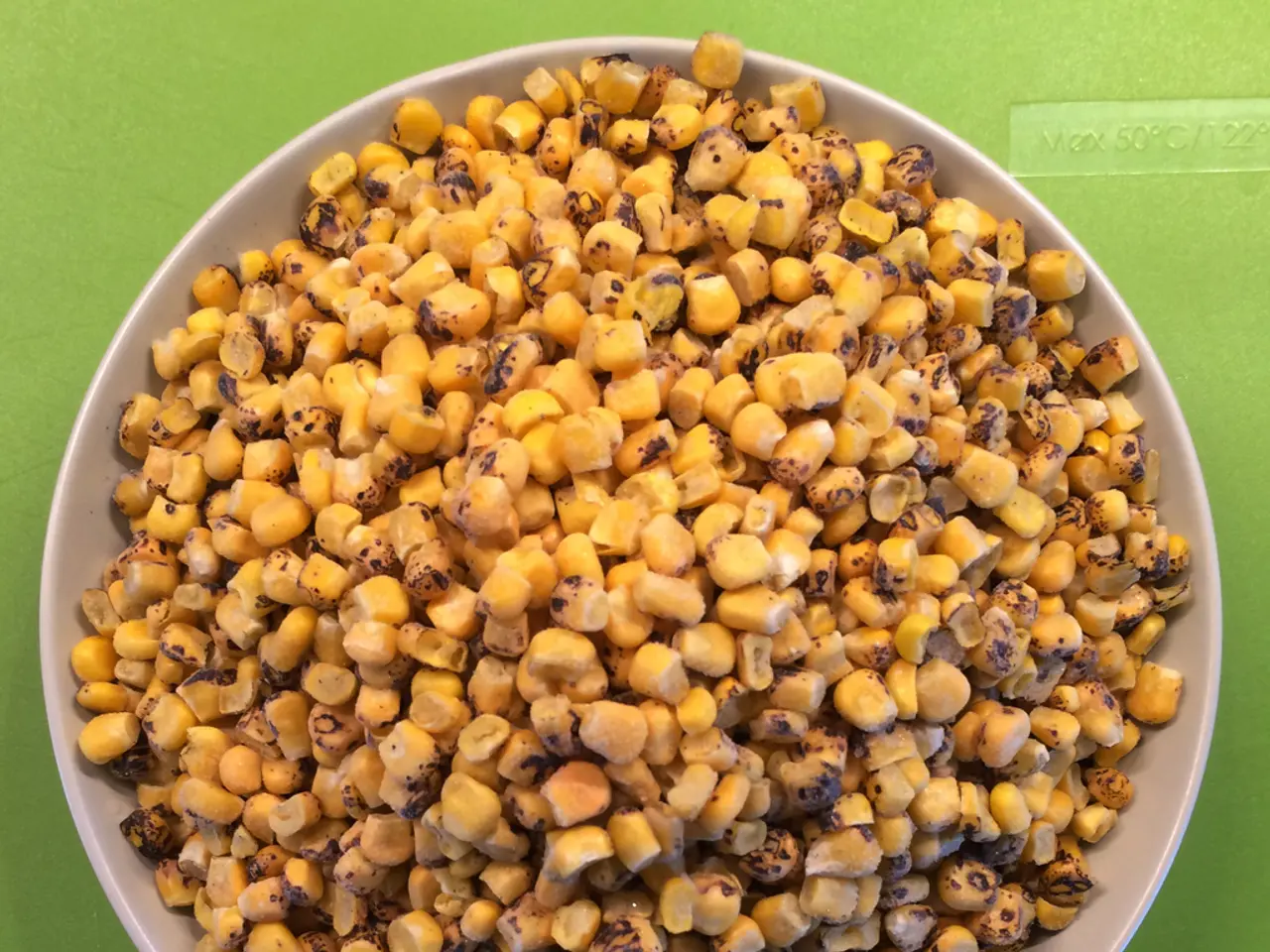Nine Explanations for Seed Non-Germination and Potential Solutions Provided
In the world of gardening, the first step towards a flourishing garden is successful seed germination. Understanding the factors that affect seed germination is crucial in ensuring healthy seedlings.
Seeds need the right conditions to sprout. Common factors affecting seed germination include water availability, temperature, oxygen presence, light exposure, seed coat characteristics, and seed dormancy mechanisms.
Water
Seeds require moisture to initiate metabolism, but overwatering can cause oxygen deprivation and seed rot. Keep the medium moist but well-drained and not waterlogged.
Temperature
Each species has an ideal germination temperature. Avoid temperatures too low to slow metabolism or too high to cause stress. Some seeds require cold stratification (a cold period) to break dormancy.
Oxygen
Seeds respire during germination and need oxygen. Well-aerated soil or growth medium avoids anaerobic conditions.
Light
Small seeds often need light to trigger germination, ensuring they sprout near the surface. Others require darkness. Understanding species-specific light needs prevents germination failure.
Seed coat and dormancy
Hard or impermeable seed coats can prevent water or oxygen absorption. Mechanical scarification or soaking seeds helps overcome this. Some seeds have chemical inhibitors removed by environmental cues like fire, abrasion, or passing through an animal’s digestive system.
Avoiding stress
Avoid excessive or insufficient moisture, extreme temperature fluctuations, and poor aeration to prevent induced dormancy or seed death.
For practical gardening, it's essential to plant seeds at an appropriate depth (generally twice the seed diameter), pre-soak old or difficult seeds, use indirect light or grow lights, and maintain humidity around 60–70% initially, reducing as plants grow.
Before using trays, pots, and containers, make sure they're all clean. Maintain proper hygiene and dispose of contaminated materials safely away from your garden's growing regions and compost heap.
The garden may be attacked by pests and diseases. Aphids, nematodes, snails, wire worm, beetle worm, leaf hoppers, and other common pests can attack seedlings and plants. Overwatering can result in waterlogging and compaction, increasing the likelihood of damping off issues.
Seeds planted outside too soon may not germinate due to cold temperatures. Seeds may not germinate if planted at the incorrect depth, with wide and large seeds placed deeper, and smaller seeds planted towards the surface.
Seed dormancy can be physical, requiring pre-soaking or scraping of the seed surface, or chemical, requiring refrigeration for a certain period. The quality of seeds purchased is crucial for optimal germination. Overcrowding can result in nutritional issues, so make sure there aren't too many plants fighting for the same limited resources.
Ensure seeds are stored in a way that will keep them fresh for as long as possible. Keep your seeds away from damp areas and don't allow them to overheat and dry out to avoid rot. Seeds may not germinate if they were stored in areas with high temperatures.
Reputable seed banks, growers, or vendors with a reputation for high-quality genetics should be chosen for seed purchase. The soil in container gardens might become overly compact, preventing seeds from forming healthy roots and sprouting.
Seeds planted too late may sprout in hot conditions and die of stress before breaking the surface. Damping off can occur if your seedlings germinated unevenly and then wilted and perished soon after, indicating an issue known as 'damping off.'
Seeds may not germinate if planted too soon or too late, due to improper season or temperature conditions. Overwatering can result in poor, spotty, or non-existent germination, one of the most common reasons of poor germination.
Lastly, remember that seeds require care. Plant seeds differ from species to species, especially in terms of how they should be cared for. Seeds can become dormant, preventing germination even in ideal conditions. Incorrect storage of seeds can cause them to lose viability. By following these guidelines, you can minimise common germination problems and support successful seedling development.
- Maintain the medium in which seeds are planted moist, but ensure it's well-draining and not waterlogged to prevent oxygen deprivation and seed rot.
- Each species has an optimal germination temperature, so avoid extreme temperatures to prevent slow metabolism, stress, or induced dormancy.
- Oxygen is essential during seed germination as seeds respire, so use well-aerated soil or growth medium to avoid anaerobic conditions.
- Small seeds often need light to trigger germination, while others require darkness, so understand the species-specific light needs to ensure successful germination.
- Hard or impermeable seed coats can hinder water or oxygen absorption. Mechanical scarification or soaking seeds can help overcome this.
- To avoid overcrowding, ensure there aren't too many plants fighting for limited resources in your indoor nursery or home-and-garden, as this can lead to nutritional issues.






